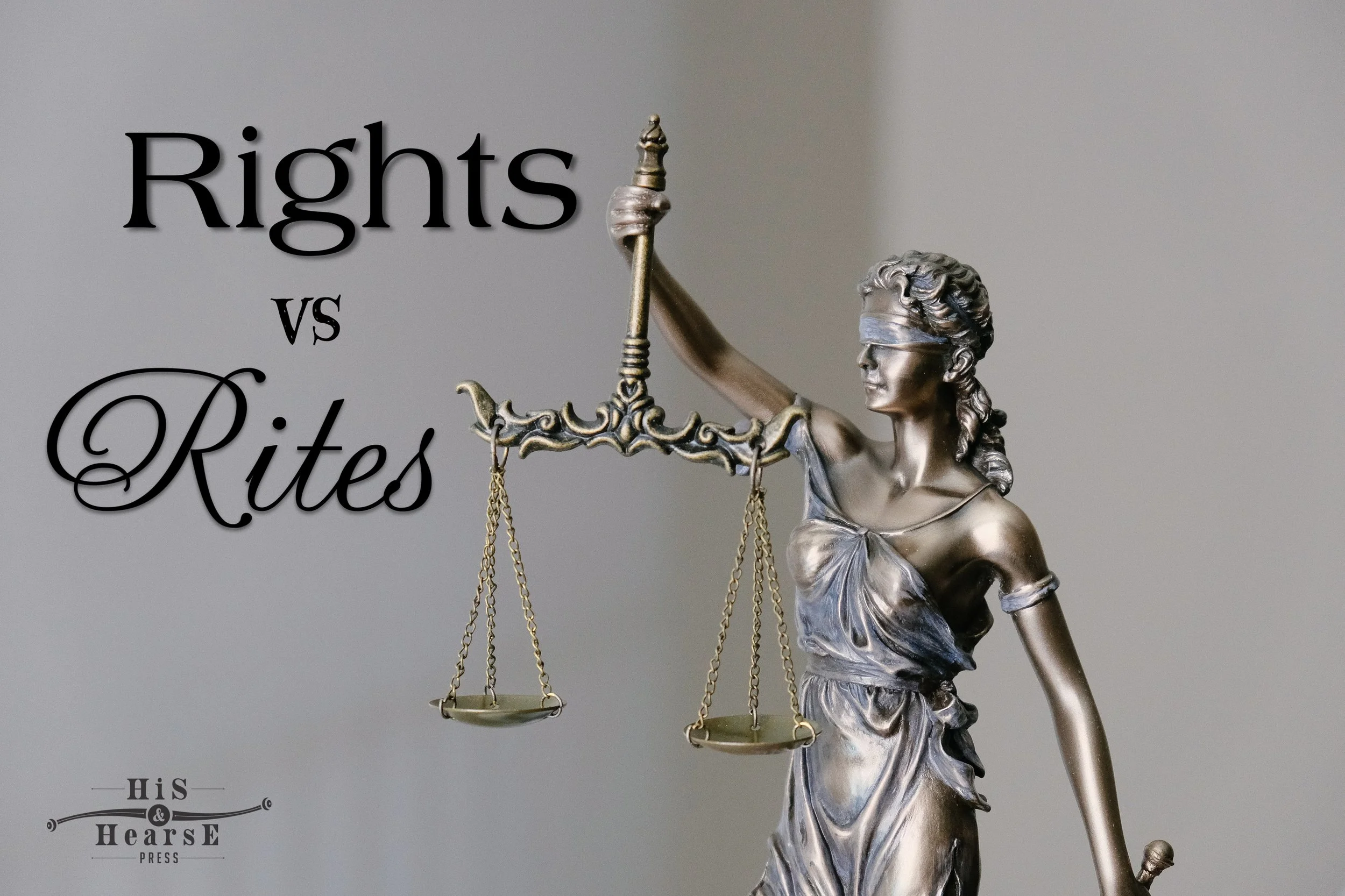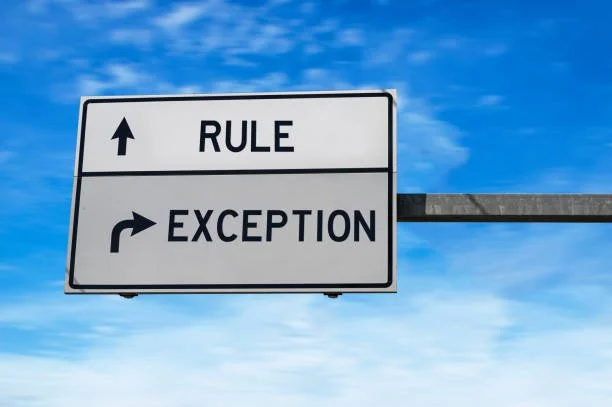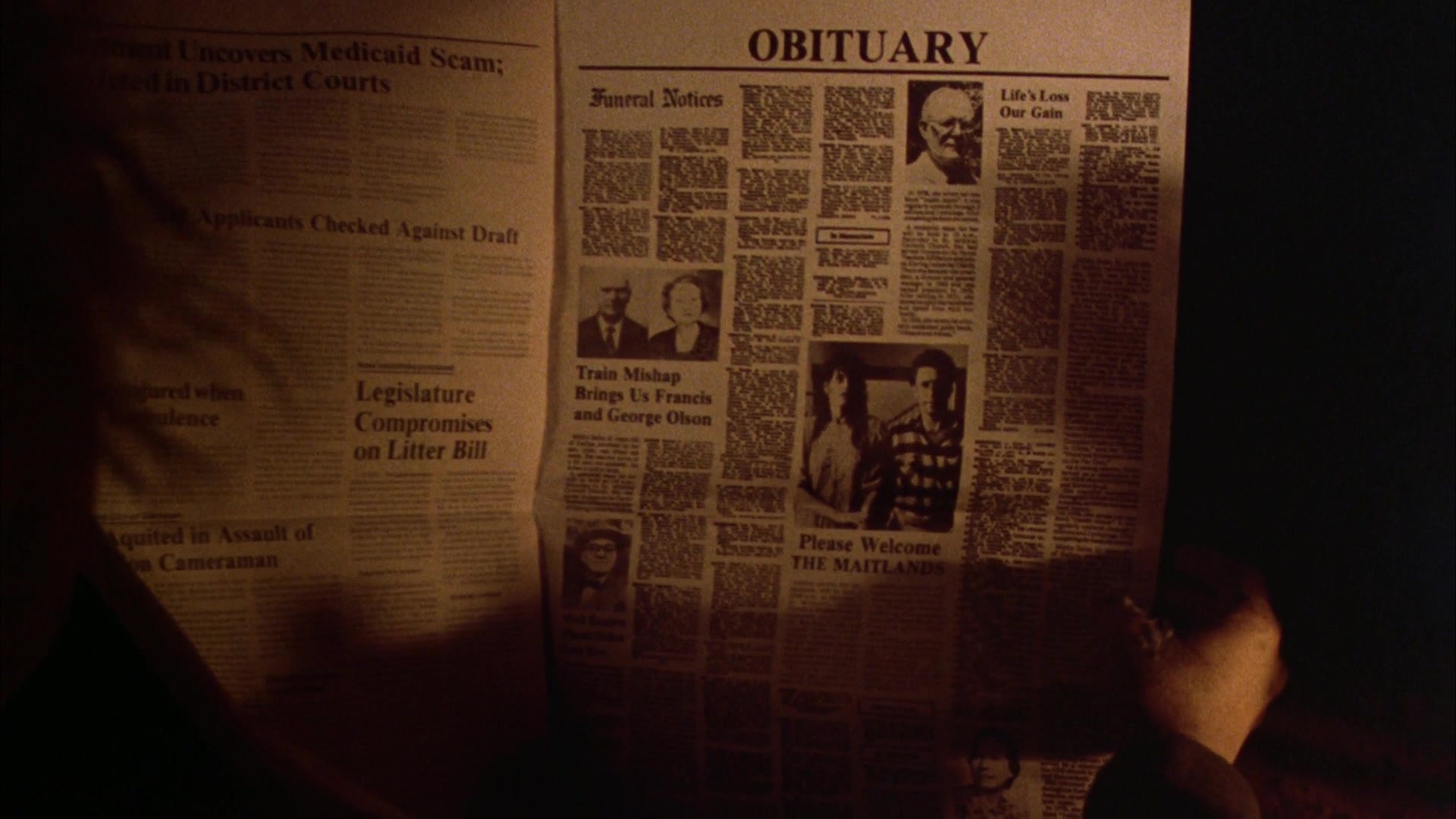Rights vs Rites
Your body, your rules:
How to legally protect your funeral wishes
Imagine you’re a ghost watching your own funeral.
Are you satisfied with your family’s decisions about your casket? The music? How about the eulogy: are they getting your details correct? Even in the best-case scenarios, your loving family may get things wrong.
Now consider being part of an estranged family with complex dynamics and opposing viewpoints. Will they respect your wishes? Or will they go the complete opposite route out of spite?
Let’s talk about how to get what you want after death and ensure that the right people are in charge of your medical, legal, financial, and funeral decisions.
Note: Everyone should have plans and legal documents in place, no matter how perfect their families are! The following tips apply to people with typical relationships, people with complicated relationships, and the particular challenges faced by the LGBTQIA+ community.
Who Is in Charge? NOK!
Let’s begin with who gets to be the next of kin (known as NOK). As a funeral director in California, I have to follow the hierarchy stated in the Health & Safety Code. Your location may differ slightly, so check your local laws. There are also some exceptions, which I’ll list at the end. Here is the order in California.
“The right to control the disposition of the remains of a deceased person, the location and conditions of interment, and arrangements for funeral goods and services to be provided, unless other directions have been given by the decedent (emphasis mine) pursuant to Section 7100.1, vests in, and the duty of disposition and the liability for the reasonable cost of disposition of the remains devolves upon, the following in the order named:”
Yourself! You can be first in line to control the arrangements if you’ve signed a fully funded and unambiguous funeral pre-need contract (I’ll say more about that later).
Your DPOA for HC. That’s shorthand for “durable power of attorney for healthcare.” This is an agent you’ve authorized to make decisions on your behalf. Even if you’re married, this agent supersedes your spouse. You can decide to name your spouse as DPOA for HC, and so the importance of the document is recording your medical choices.
Be aware that if you don’t set up this document properly, it may expire when you die. That means your agent was allowed to make medical decisions but cannot continue and make funeral arrangements. This document can also be referred to as an Advanced Health Care Directive.
Your spouse or SRDP (state registered domestic partner). FYI, if you have separated but not legally divorced, this person retains their rights as your next of kin! If you prefer not to have this person as your NOK, you need to assign a DPOA for HC ASAP! Got it?
Also, many states don’t recognize common law marriage. It’s not really a “thing” like it used to be (read more about common law marriage here). If you think you are in a common law marriage, check your laws and generate legal documents to cover yourself. The same advice applies to polyamorous relationships. Better safe than sorry, especially if something happens while you’re traveling in another state.
Your adult children (18+ years old). The rights don't just go to the oldest child. Each child is equal, with legally adopted children having equal rights to biological children. The children are responsible for making decisions together. A majority agreement is required, unless reasonable efforts to reach some were unsuccessful AND there’s no knowledge of them having any opposition to their siblings’ choices.
Your parents: either both in agreement, or just one if the other could not be located after reasonable attempts.
Your adult siblings. The same majority rules apply.
After that, the hierarchy expands simultaneously up and down the family tree to determine the next closest degree of kindred. We need the majority of adults in the same degree of kindred to agree. We can accept less than the majority, if some cannot be found and there are no known objections.
It’s in the best interests of the funeral director to get as many people to sign as possible, just in case someone appears later on and objects to the cremation… that’s already been completed.
In case you want to know, here’s the rest of the general order of consanguinity:
7. Grandparents and (adult) grandchildren
8. Aunts, uncles, nieces, nephews, great grandchildren, great grandparents
9. Grandnieces/nephews, first cousins, great aunts/uncles, great-great grandparents
10. Other “grands” and “cousins removed”
11. The local Public Administrator (if you have assets)
12. The funeral director or cemetery authority (if no one steps up or can be located)
13. The coroner, who can provide for you as “indigent dead”
Exceptions
If your NOK has been charged with killing you, they lose their rights to your disposition. Makes sense. A first- or second-degree murder or a voluntary manslaughter charge means that control passes to the next person in line. However, if the charges are dropped or acquitted, their rights are restored.
Most of these rules require the NOKs to be adults. The exceptions are for underage spouses and underage parents of a deceased child. In every case, however, NOKs must be competent (have not been declared incompetent by a court of law).
If any NOK fails to act or cannot be found within a designated amount of time (depending on your laws, but typically something like 7-10 days), the rights pass to the next person. If the NOK group has been located but a majority consensus cannot be reached, the courts may have to intervene. It can get ugly.
Another complication arises when one person dies in an accident and their NOK is critically injured. Do you wait for that person to recover sufficiently, or bypass them? It’s a very thorny situation, and there’s no right answer.
How Can My Family Cause Problems?
Without the proper legal documents, your NOK can make a colossal mess of your death. They can choose a disposition you wouldn’t have wanted (burial vs cremation). They can choose a service that conflicts with your religious views. They can dress you in whatever they want. They have control over your assets and possessions. They can mess with people whose business or finances are intertwined with yours. They can try to liquidate property that other people rely on.
For LGBTQIA+ people, the damage can go much deeper. Your NOK can exclude your partner(s) entirely. They can prevent your partner(s) from seeing you, and can transport you far away to be buried elsewhere. If your NOK doesn’t acknowledge and respect your gender, they can deadname you in your obituary and on your headstone. They can use incorrect pronouns during your funeral. They can request you to be dressed and presented as the wrong gender.
How Do I Prevent That?!
Legal documents! Now! Don’t wait until it’s too late. Get yourself some level of protection.
Depending on your location and finances, there’s a range of options. I’ll give you some starting points and resources (USA based), but it’s up to you to research the specific laws in your area. If you can afford it, get professional legal advice or have an attorney check over documents you find online before you sign them. It's important to cover all of your bases if you have a complicated family situation. If minor children are involved, don’t forget to make provisions for them.
These are the documents commonly associated with end-of-life decisions. Again, this is a very broad description. Expect variations and nuances by location. Consult professional legal advice.
Durable Power of Attorney for Health Care - aka DPOA for HC, or Advanced Health Care Directive. This is SUPER important, especially if you have complicated family dynamics. The document shows who’s allowed to speak on your behalf if you’re not mentally or physically able, and outlines your wishes about medical treatment, life support, “do not resuscitate,” comfort care, organ donation, autopsy authorization, and the disposition of your remains.
Some powers of attorney expire at death, so be sure to grant permission for post-death decisions. This person essentially becomes your next of kin, so choose wisely!
Download and your state or territories’ Advance Directive Form here.
POLST - aka portable medical orders (originally Physician Orders for Life-Sustaining Treatment). This is almost like an extension of an Advanced Health Care Directive meant specifically for people who are seriously ill or frail. Most people do not need this document.
Rather than assigning your medical decisions to an agent, it simply states what you do and do not want. It covers a limited number of critical medical decisions, is completed in conjunction with a doctor, and will be honored by EMTs (emergency medical technicians cannot honor other directives or powers of attorney). Learn more about POLSTs here.
Funeral Pre-need - aka prearrangements. Go to a mortuary, learn about your options, then sign a contract stating exactly what funeral plans you want. You can choose your casket, urn, flowers, service preferences, and method of disposition (cremation, burial, etc.). The law in California states that a fully funded and unambiguous pre-need must be honored. Your next of kin cannot change your wishes.
Even if you don’t end up signing a contract, it’s a good idea to do the research and write down which choices you prefer. Give your chosen next of kin some idea or direction on how you want to be memorialized.
Appointment of Agent to Control Disposition of Remains - some states have a form that legally designates a person to make your funeral decisions. It can be helpful in cases like blended families (like having children from a first marriage override the current spouse for funeral arrangements), or in situations where different people will be in charge of different estate responsibilities.
It’s a fairly short and simple document. You can stipulate limitations and allow/disallow your NOK to change your cremation wishes.
Will - aka Last Will and Testament. This is more for the stuff you own rather than who can do what with your body. Wills allow you to be crystal clear about who gets your property and possessions, plus who will be your children’s guardian.
Having a Will saves your heirs time and money, and it keeps the courts from interfering (although some wills go through probate, the process is simpler and cheaper). A Will only goes into effect after you die.
Trust - aka Living Trust. This creates a separate legal entity to hold assets for your own benefit or for a beneficiary. It is not used to designate guardianship of minor children, but it can control the release of funds to children at certain times/ages. It’s effective as soon as it’s signed and funded (unlike a will), avoids probate, generally takes precedence to wills, and can have tax/creditor protection if it’s an irrevocable trust.
They’re more complex than wills, so they cost more if you’re using an attorney to write it. A trust can help protect and direct your assets in the event you become mentally incapacitated (unlike a will).
I know this all sounds terribly confusing! Read more about the difference between wills and trusts here.
In The News:
Actor Chadwick Boseman died without a will or trust. Recent reports claim that his estate (worth about $3.8 million) went through probate and was whittled down and divided by the courts.
His wife received $1.15 million, his parents received $1.15 million, and nearly $1 million went to probate fees and taxes.
Important: be careful where you store your original documents.
A safe deposit box may not be accessible to your executor until a death certificate or court order is completed, which can take weeks or months (another reason why a Will should not contain funeral instructions). Instead, consider a fire and waterproof safe. Give your agent/executor photocopies and instructions on how to access the originals. Photocopies can also be given to your alternate agents and your hospital/doctor.
With Great Power Comes Great Responsibility
Are you choosing your NOK for the right reasons, or because it’s someone you feel obligated to pick? You ought to trust your NOK implicitly.
If you don’t, you need to assign the responsibility to someone else. Choose someone whom you know won’t take advantage of you financially (especially if you’ve granted them financial decision-making powers while you’re still alive).
Your NOK needs to lead with your interests, not their own. They don't need legal or financial expertise, but should know when to ask for help. You must be comfortable giving them access to records, passwords, accounts, and safes.
In other words, they’d better not help themselves to the contents of your safe deposit box after you give them a key.
Last Tips and Reminders
Don’t assume you know next of kin laws. Also, your NOK may not be your NOK in a different state that doesn’t acknowledge your relationship/paperwork. Cover yourself.
If you have family drama, get your paperwork and wishes written up ASAP. You never know when you might get hit by a bus.
Research local attorneys and mortuaries to ensure they’ll respect your safety in identity. That basically means that they’re LGBTQIA+ friendly. Even if local laws require certain legal forms to have your birth name and gender, you can usually have the rest of your funeral reflect your correct identity. I’ve included links to LGBTQIA+ legal resources at the end.
Control the narrative of your obituary: write it now! You can use your correct name, pronouns, talk about whatever matters most, and include a list of survivors according to your terms. Learn how to write your own obituary here.
Learn about your state’s policies regarding legal names and gender markers. Some states have death certificates that include an “x” marker. Sometimes you may legally have to show your deadname on documents. Perhaps you can include an AKA. These things will matter tremendously if your NOK applies for your insurance benefit and your name/gender doesn’t match the policy.
Along those same lines, if you have legal name/gender changes, make sure copies of the documents are handy. A funeral director can apply for military honors and benefits for a LGBTQIA+ veteran, but there has to be a paper trail to prove it. You earned those honors and benefits, use them!
Check with your cemetery to see if they have restrictions on headstones or grave markers. Does it have to show your birth name, legal name, or correct name?
Even if you don’t do full, legally binding prearrangements, does your NOK know your funeral wishes? Have that difficult discussion. Tell them if you prefer burial, cremation, a religious service, a viewing, embalming, flowers, particular clothing/hairstyle/cosmetics. If you use any gendered forms or prosthetics, leave instructions. Give them the tools they need to make the right choices on your behalf.
Are you considering telling your family, “No funeral, please!”? While it’s important for your family to respect your wishes, remember that funerals are for the living. Is there a specific reason you don’t want a funeral? Is it because you’re avoiding the fuss or expense? Talk to your family. They may feel strongly about having an opportunity for closure and to pay their respects.
It doesn’t have to be a fancy ceremony. It can be a small family memorial dinner, a gathering of friends at the park, pizza at a bowling alley, or any other get together to acknowledge that you touched their lives and are now gone. See if you can reach a compromise. Read about “How to Memorialize a Loved One Who Asked for No Funeral” here.
I realize that thinking about your own funeral probably isn’t high on your list of priorities. Considering, however, that there’s a 100% degree of certainty that you will die someday, maybe you should put some thought into making things easier for your loved ones.
At the very least, protect yourself and your chosen family’s rights. If that means excluding your obnoxious blood kin, so be it.
Don’t wait until it’s too late.
Helpful Links
The ‘Get Your Shit Together’ Big Checklist for before and after death
Power Of Attorney: An Essential Legal Document You May Have To Prepare Yourself
Chosen Family Law Center (New York)
LGBTQ + Bar: Family Law Attorney Directory (Lavender Law)
Trans Doe Task Force (identifying misgendered John and Jane Doe’s)
Have you ever been in a situation like this? What did you learn, and what advice would you give to others? Comment below!
Kalisto Nanen, BA Anthropology & Journalism, Funeral Services Consultant contributed to this post as a specialist in LGBTQ communities, disability justice and queer anthropology. I’m grateful for their input and resources.
Veteran funeral director, embalmer, and lifelong bookworm, Louise finally found her purpose: educating and entertaining strangers on the internet about dead bodies and funerals.
Her blog, Read In Peace, combines her passion to educate with fun and humor. She shares tips and useful information about death and funerals, along with lighthearted “dissections” of related books and movies.
Louise is currently working on her first book, a nonfiction guide called Embalming For Amateurs.















